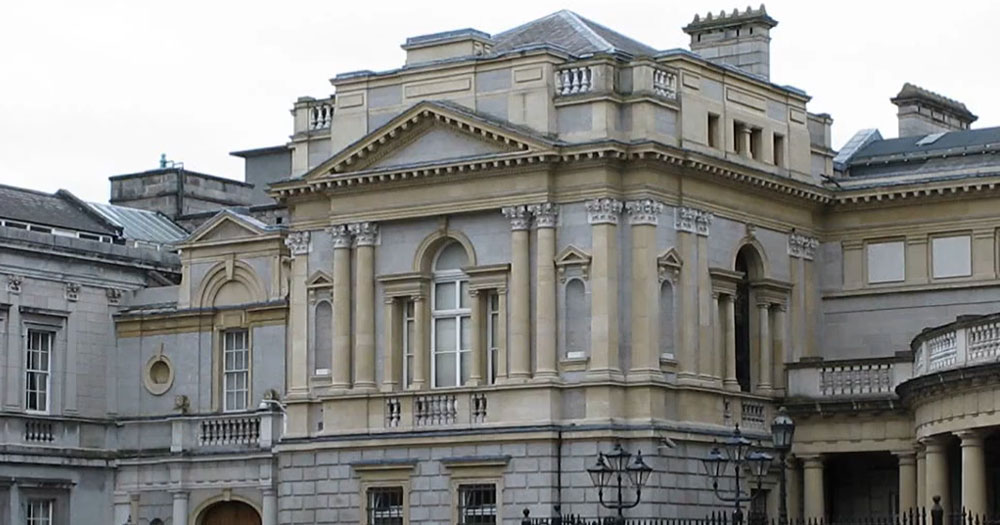The Irish Human Rights and Equality Commission (IHREC) has brought out a report detailing over 60 recommendations “on how Ireland’s Equality Laws need to be reformed, updated and improved”, according to their Twitter account.
The report covers a number of areas that require reform, including Access to Justice under the Equality Acts, Discriminatory Grounds, Exemptions to the Prohibition of Discrimination, Employment Equality Acts and Procedural and Other Issues in the Equality Acts.
. @_IHREC has just published our recommendations to @dcediy @rodericogorman on how Ireland's Equality Laws need to be reformed, updated and improved.
You can read our detailed 60+ recommendations in full https://t.co/5WNqyIfIvW pic.twitter.com/ZTll4BIpBX
— Irish Human Rights & Equality Commission (@_IHREC) January 10, 2022
“The next generation of equality legislation needs to combat all emerging and cumulative forms of discrimination, comply with European and international legal frameworks, ensure awareness of rights, mandate disaggregated data, and address the existing procedural and accessibility issues impacting on access to justice,” the report reads.
“It also needs to adopt a proactive model of promoting equality and ensuring compliance, including by further shifting the burden onto the State to identify, mitigate and respond to equality issues that may arise.”
DFI agrees with @_IHREC that we need to move on from medical definitions of disability and towards the rights-based model in the #UNCRPD. See our submission here: https://t.co/4EJZbcC6wk https://t.co/VjIyHJnGqt
— DFI (@DisabilityFed) January 10, 2022
Dating back to December 2021, the report specifically calls for the protection of Transgender, non-binary and intersex people under Irish law in a section on the Grounds of Discrimination.
“We welcome and indeed echo calls by the IHREC for Trans, Non-Binary and Intersex people to be explicitly covered as part of this welcome and timely update of our equality legislation,” stated Adam Long, Board Director with the National LGBT Federation. “As far back as 2016, a part of our annual Dublin Pride Political Debate, a Govt Minister on my panel committed to such a policy.”
We welcome & echo calls by the @_IHREC for Trans, Non-Binary & Intersex people to be explicitly covered in updated equality laws.
As far back as 2016, a Govt Minister told our NXF Pride Debate of such plans. @rodericogorman @GCNmag @TENI_Tweets https://t.co/DP3hYvSHRy
— NXF (@nxfie) January 10, 2022
Among other recommended changes, the report also seeks to better protect the children of LGBTQ+ families. It states:
“Private primary schools and all secondary schools can currently refuse to admit a student on the basis of religion where: ‘it is proved that the refusal is essential to maintain the ethos of the school’. Clarity is needed in the law on the definition of ‘ethos,’ and precisely what would be required to establish that such a refusal was ‘essential’ to school ethos.”
Good to see @_IHREC considering the position of family carers in Irish society in their newly-published recommendations. Hopefully this is evidence of an increased level of concern about carers and the difficulties they face. https://t.co/7QNjYZVxpl pic.twitter.com/d8CXajwyzK
— Mairead O'D (@MaireadODM) January 10, 2022
You can read the report and IHREC recommendations in full here.
© 2022 GCN (Gay Community News). All rights reserved.
Support GCN
GCN is a free, vital resource for Ireland’s LGBTQ+ community since 1988.
GCN is a trading name of National LGBT Federation CLG, a registered charity - Charity Number: 20034580.
GCN relies on the generous support of the community and allies to sustain the crucial work that we do. Producing GCN is costly, and, in an industry which has been hugely impacted by rising costs, we need your support to help sustain and grow this vital resource.
Supporting GCN for as little as €1.99 per month will help us continue our work as Ireland’s free, independent LGBTQ+ media.

comments. Please sign in to comment.